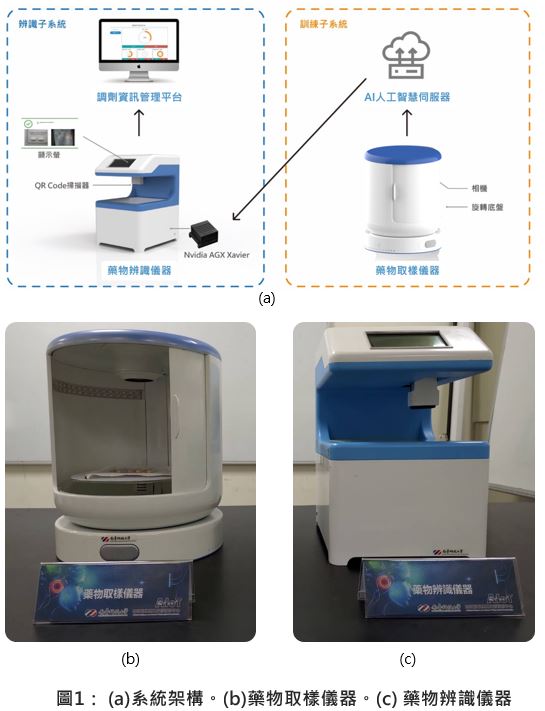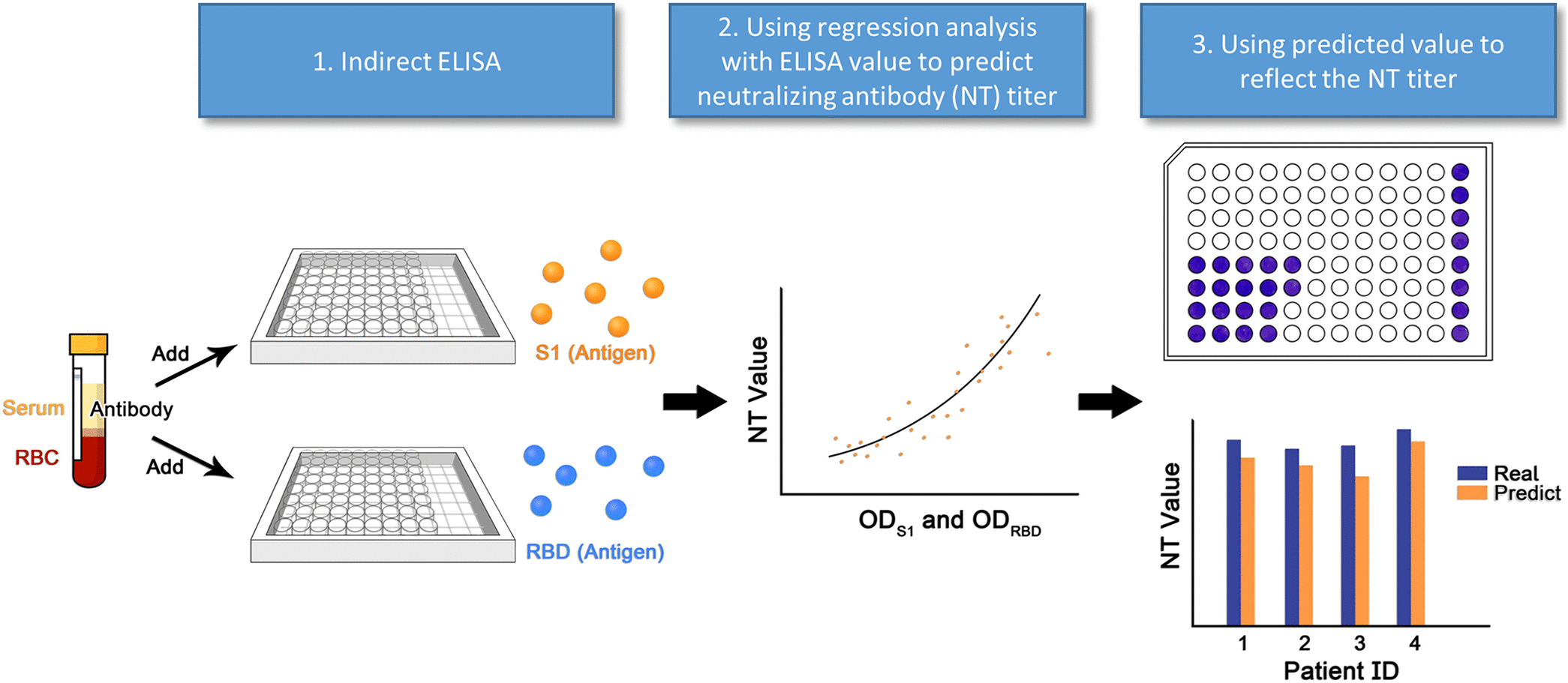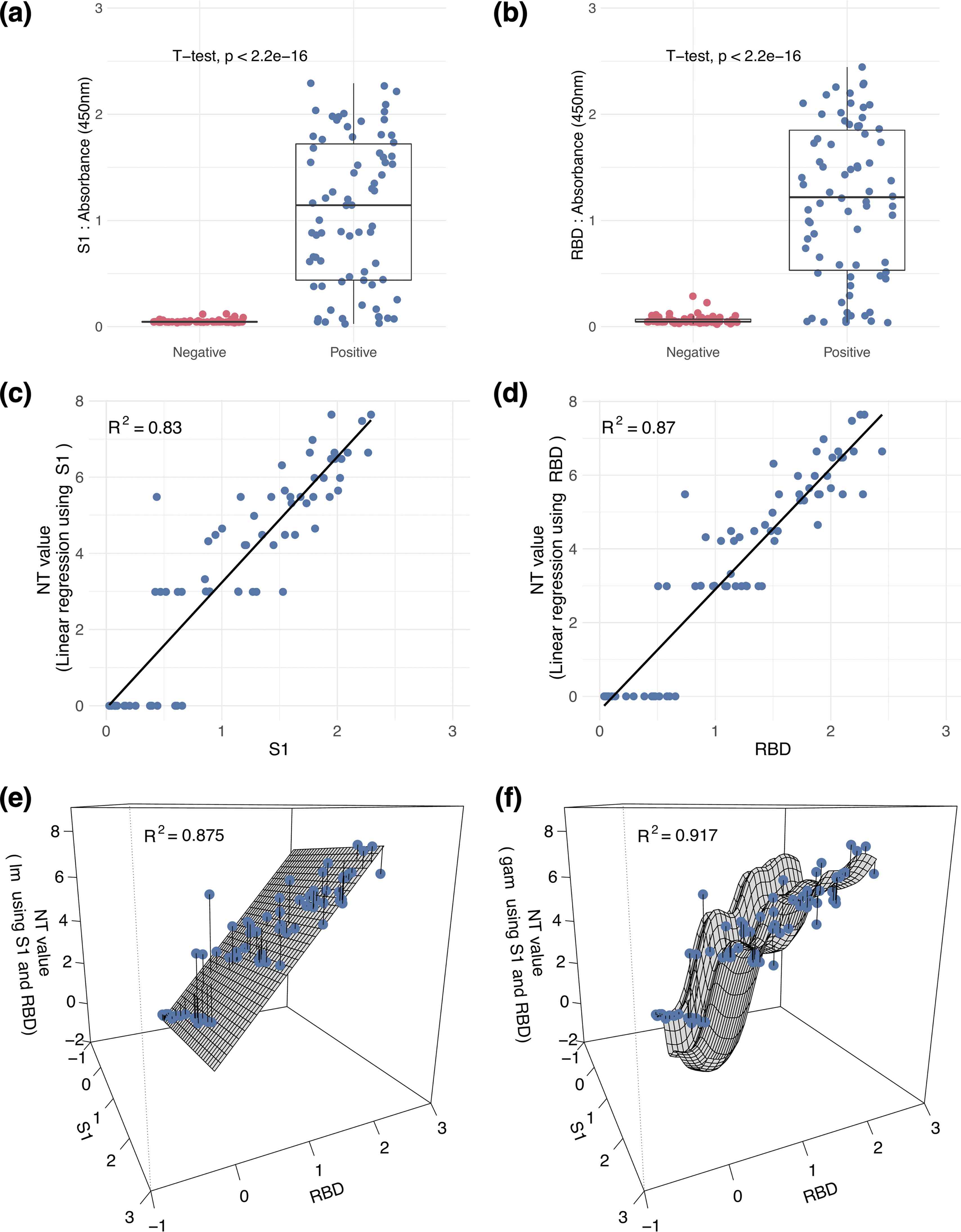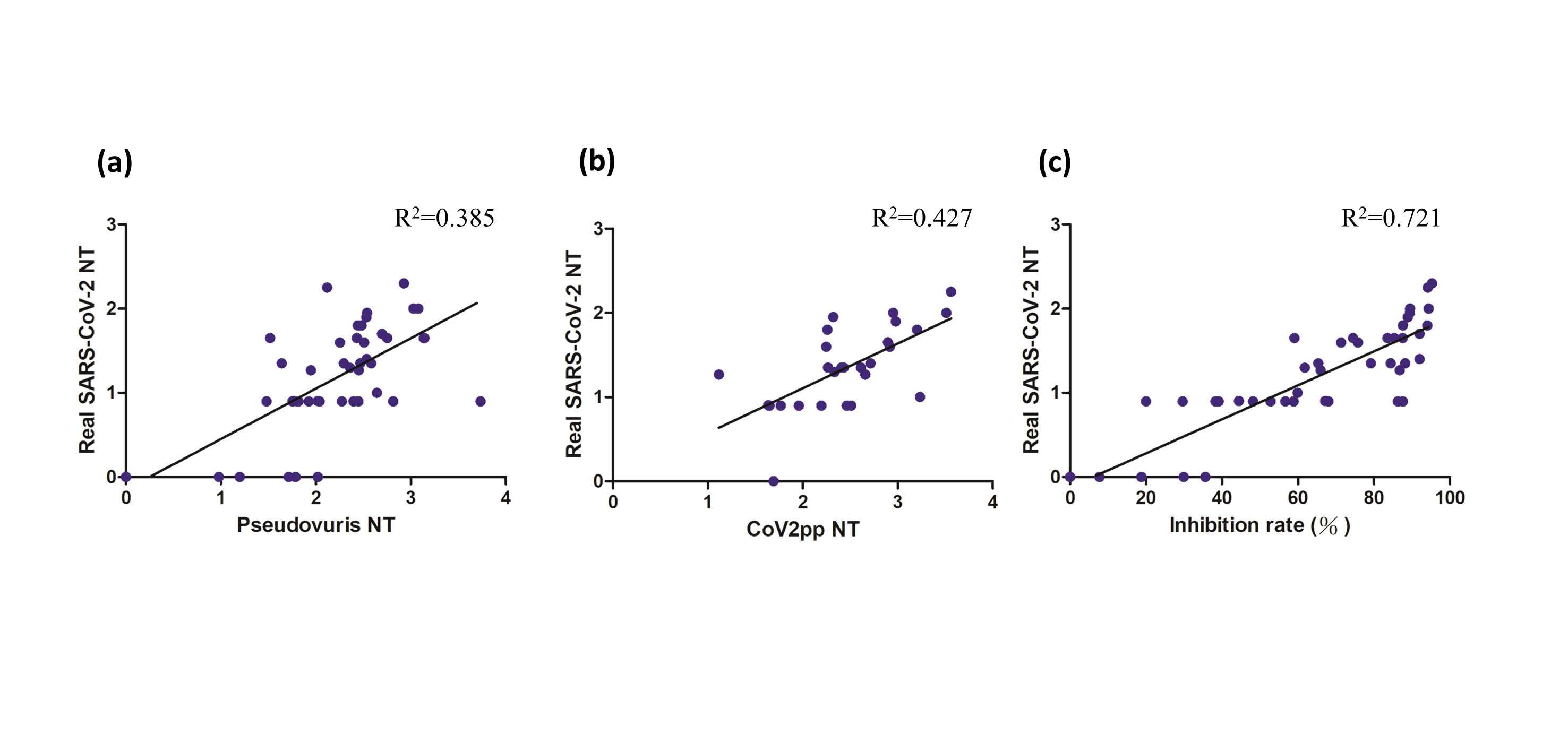| Technical Name | Using Two-variable Generalize Additive Model to Dynamically Predict Neutralizing Antibodies in Patients with COVID-19 | ||
|---|---|---|---|
| Project Operator | Chang Gung University | ||
| Project Host | 施信如 | ||
| Summary | The use of two-variable generalized additive model to dynamically predict the neutralizing antibody of the new coronavirus can replace the traditional neutralizing antibody experiment that originally needs to be carried out in Biosafety Level 3 (BSL-3) laboratories. Instead, this model can be carried out with the general laboratory. Serological enzyme-linked immunosorbent assay (ELISA) experiments can quicklyaccurately obtain the titer of neutralizing antibodies from clinical specimens. This technology has important application value for controlling new SARS-CoV-2 variantsinvestigating the efficacy of various vaccines. |
||
| Scientific Breakthrough | This technology serves as a surrogate to quantifying neutralizing antibody titer which should be performed at P3 laboratory for several days. The new method can be performed at a general laboratorycan obtain the results within 2-3 hours, which has great potential application for clinical use to assess vaccine efficacy. |
||
| Industrial Applicability | The technology can measure the amount of neutralizing antibody which correlates to protection efficacy of an individual whether he/she would be infected again by COVID-19. This diagnostic kit will help vaccine efficacy validationhas a great potential to provide laboratory data for so-called "immunity passport". |
||
| Keyword | SARS-CoV-2 Neutralizing Antibody Generalize Additive Model Enzyme-Linked Immunosorbent Assay | ||
- Contact
- Yu-Nong Gong
- yngong@mail.cgu.edu.tw
other people also saw







